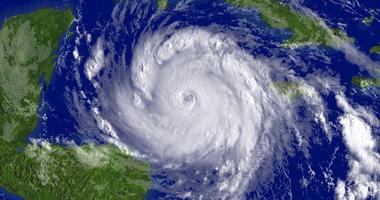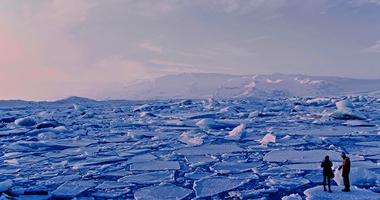
The Rise in Unnatural Disasters: Heat Waves
The climate crisis is turning up the heat on heat waves.
3 min read
Extreme heat is the number one killer among all weather-related phenomena.
And it’s happening more and more as average global temperatures rise and the climate crisis deepens.
Last year was the warmest on record, and already in 2024, each month so far has been the hottest January, February, March, April, May, and June, respectively, ever recorded.
In late April, sizzling heat plagued Asia and the Middle East. A few weeks later, Mexico City endured multiple days of record-setting temperatures.
Then in June, positively scorching heat struck – and stuck around – the US Southwest, Midwest, and Northeast.
And now here we are, just eight days into July, and yet another heat wave – this one “potentially historic” – is bearing down on the US West Coast.
“California, Oregon, Washington, Nevada, and Arizona are bracing for potential wildfires, opening cooling centers and warning residents to stay indoors and keep hydrated as the unrelenting heat wave delivers sweltering temperatures well into the 100s and 110s – with highs in the 120s possible in the Desert Southwest,” CNN reports.
Where can we lay much of the blame? On the fossil fuel-driven climate crisis.
Imagine a thermostat cranked all the way up. That's the effect climate change is having on heat waves, making them hotter, longer, and more frequent.
Here's how.
Why Is This Happening?
Burning fossil fuels releases greenhouse gases like carbon dioxide. These gases act like a blanket around Earth, trapping heat from the sun and causing the planet to warm.
This overall warming trend creates an elevated baseline for even hotter extremes, pushing temperatures during heat waves to record highs.
At the same time, climate change may be causing the jet stream to sometimes weaken. The jet stream, a high-altitude wind current, helps steer weather patterns. But when it slows down, weather systems, including heat waves, can get stuck in place for longer periods, amplifying their intensity and duration.
This impact is sometimes referred to as a “heat dome.”
>> Learn more: Summer’s Climate Impacts Hit Hard <<
Heat waves can also become even more dangerous in cities and other urban areas, a phenomenon known as the “urban heat island effect.”
Cities, with their abundance of buildings, asphalt, and concrete, absorb and retain heat more than natural landscapes like open fields, forests, and less densely built up areas. This creates urban heat islands, where temperatures can be several degrees higher than outlying rural areas.
The impacts of heat waves can have a domino effect, cascading across ecosystems and societies.
Droughts become more likely as heat increases evaporation. Wildfires become more frequent and intense due to drier conditions. Heat stress harms crops and livestock, impacting food security. Public health suffers as heat exhaustion and heatstroke become more common.
And it’s not just on land.
Oceans act as giant heat sponges, absorbing a lot of the sun's energy. With a warming planet, oceans are also warming up too. This stored heat can influence things like strengthening hurricanes to shifting atmospheric circulation patterns, further contributing to more frequent and intense heat waves in some regions.
If we don't drastically reduce greenhouse gas emissions, scientific projections indicate heat waves will become even more severe. Some regions could see an increase of 5-10 degrees Fahrenheit in average summer temperatures by the end of the century, translating to longer stretches of dangerously hot days.
What You Can Do
We can still mitigate the worst effects of the climate crisis.
Transitioning to clean energy sources, improving energy efficiency, and planting trees in urban areas are all crucial steps. And heat wave preparedness plans, early warning systems, and ensuring access to cooling centers can save lives during extreme heat events.
By understanding the link between climate change and heat waves, we can take action to protect ourselves and future generations from the scorching grip of a warming planet.
Ready to learn even more?
Join our email list today to receive the latest in climate science and ways you can take action.




